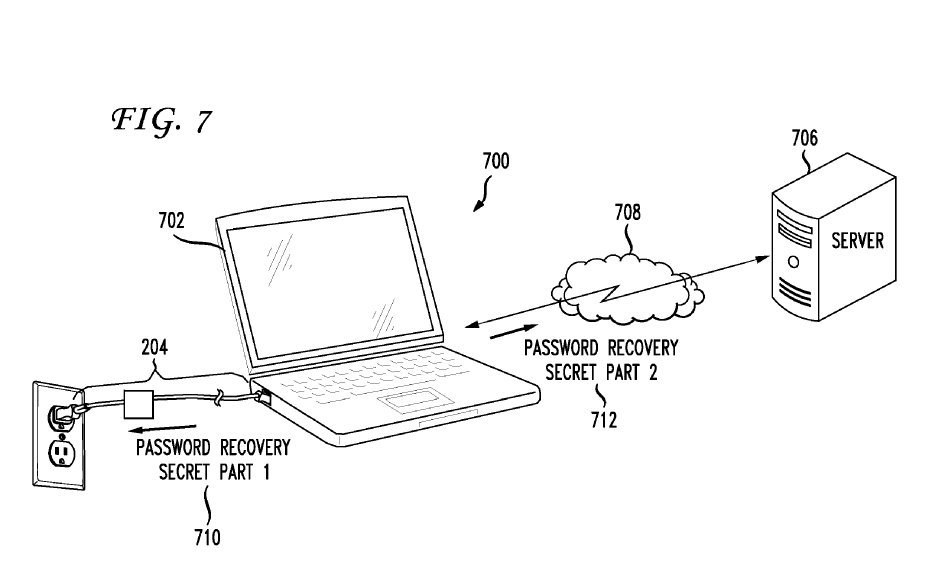The filing, 20120005747A1, describes a method for storing a password recover secret on a peripheral device, including a power adapter. The development would, in essence, turn power cords and other peripherals into a second factor that would make it harder for thieves to gain access to devices they steal.
The 16 page patent application, filed on Thursday, describes a system in which a password secret is stored in memory on a special power adapter that is associated with a specific device. Users who forgot the password necessary to access their device would first have to connect the adapter before they were able to view the recovery secret.
 The invention is designed to address problems with current password recovery mechanisms and authentication mechanisms, including user-supplied password recovery phrases (too hard to remember) and biometric authentication (requires the owner to be physically present to log in – even if they’ve died!) The power cord recovery method would also stymie thieves who snatch a laptop from a carrying case or car – often leaving the other peripherals behind.
The invention is designed to address problems with current password recovery mechanisms and authentication mechanisms, including user-supplied password recovery phrases (too hard to remember) and biometric authentication (requires the owner to be physically present to log in – even if they’ve died!) The power cord recovery method would also stymie thieves who snatch a laptop from a carrying case or car – often leaving the other peripherals behind.
The patent isn’t limited to power cords. Printers, portable hard drives, wireless routers or even a smart phone could act as a second factor. Depending on the implementation, the peripheral could store a recovery secret, or just a part of a multi-part password.
Increasing adoption of mobile computing devices, as well as high profile leaks comprising login credentials for hundreds of thousand of users have revealed weaknesses in current methods for securing devices and online accounts. Despite warnings, many users rely on insecure and easy to guess passwords, and reuse them between different devices and online services.









